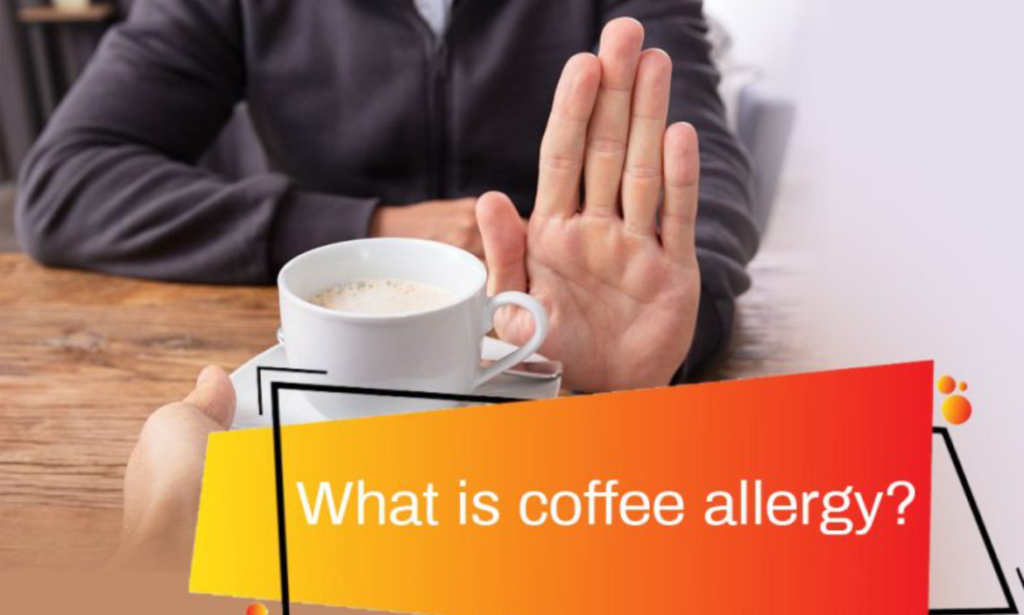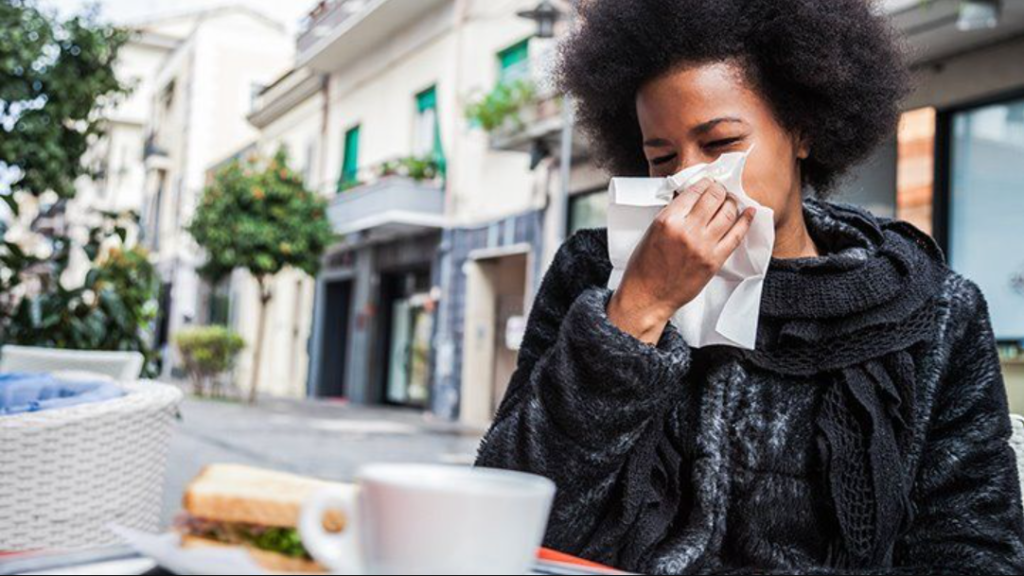What Is An Allergy To Caffeine?
An unpleasant reaction to caffeine is known as a caffeine allergy. Although the precise etiology of caffeine allergy is unknown, it is thought to be an immune system reaction to the caffeine molecule or other chemicals present in caffeinated foods or beverages. Caffeine allergies are uncommon, and they are frequently confused with intolerance or sensitivity rather than actual allergies. However, whether you are sensitive to caffeine or have a caffeine allergy, symptoms could be unpleasant. An allergist should be consulted for an accurate assessment and diagnosis.

Symptoms of a Coffee Allergy
- Hives or skin rashes
- Symptoms of eczema or itchiness
- Angioedema, or swelling of the lips, tongue, or face
- breathing issues or wheezing
- gastrointestinal issues such nausea, vomiting, or diarrhea
- headaches
- heart palpitations or a fast heartbeat
- anxiety or agitation
Anaphylaxis is a severe allergic reaction to coffee, however it happens to a very small percentage of persons. Stop drinking coffee and any other goods that might contain caffeine if you start to feel any signs of a caffeine allergy. A professional in allergies should be consulted about your symptoms as they might suggest allergy testing.
Diagnoses of Caffeine Allergies

Through several techniques for allergy testing, an allergist can identify caffeine allergy. Caffeine allergy can be identified safely and accurately using blood tests. A sample of your blood is drawn during a blood test and sent to a lab for analysis. IgE, or immunoglobulin E, is measured by the test. Your immune system produces the antibody IgE in response to a particular allergen. Your test results could arrive in up to three days.
Can difficulties arise from a coffee allergy?
If you consume coffee despite having a caffeine allergy, your symptoms may get worse. Additionally, depending on how severe a response is, you can have life-threatening anaphylactic symptoms.
Treating an Allergy to Coffee
Avoidance is the greatest remedy for a caffeine allergy. But if you do unintentionally take caffeine, over-the-counter antihistamines could be able to ease any rashes, swelling, or itching. An injection of epinephrine can be used to treat anaphylactic shock if it occurs in the extremely unlikely event that you consume caffeine. Discuss carrying an EpiPen or Auvi-Q with your allergy specialist.
Also read about: Skin Rashes from Coffee
Frequently Asked Questions
Can I Have a Caffeine Allergy?
You may be allergic to caffeine if you have allergy symptoms after ingesting it. Additionally, some people might become sensitive to caffeine.
Why Do Some People Have Caffeine Allergies?

Why some people are allergic to caffeine is unknown. Caffeine simply triggers an immunological response because the immune system incorrectly perceives it as a dangerous substance.
How is an allergy to coffee diagnosed?
Through allergy testing, an allergist can identify a caffeine allergy. The most popular way of diagnosis is blood tests. An exclusion diet might be beneficial as well.
Can a caffeine allergy be treated?
The allergy to coffee cannot be cured. There are, however, methods for treating symptoms, including the use of topical and oral antihistamines.
How Common Are Allergies to Caffeine?
Compared to other allergies, caffeine allergies are not very common. Instead of being real allergies, many unpleasant reactions to caffeine are actually caused by sensitivities or intolerances.
Can I have an allergy to coffee or tea but not to other caffeine sources?
It is possible to tolerate various forms of caffeine yet experience an allergic reaction especially to coffee or tea. Instead of the caffeine itself, this can be because of other components in those drinks.
What does a caffeine allergy look like?
Caffeine allergies generate physical symptoms that are comparable to those brought on by other food allergies. For instance, itching in the mouth, tongue, or lips. swelling tongue or lips.

